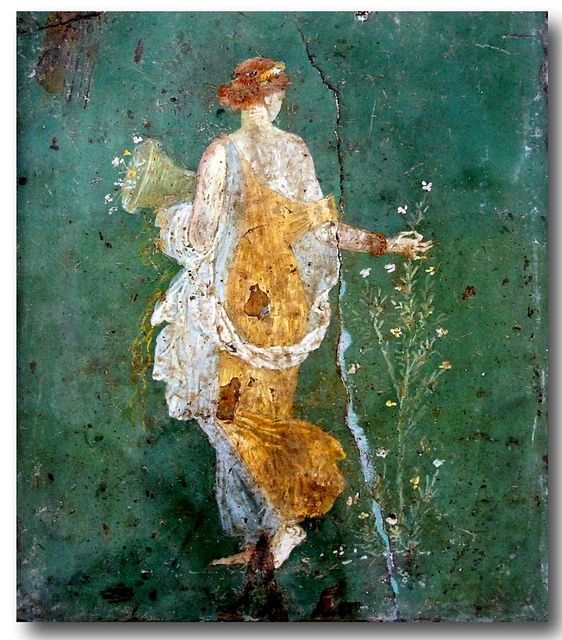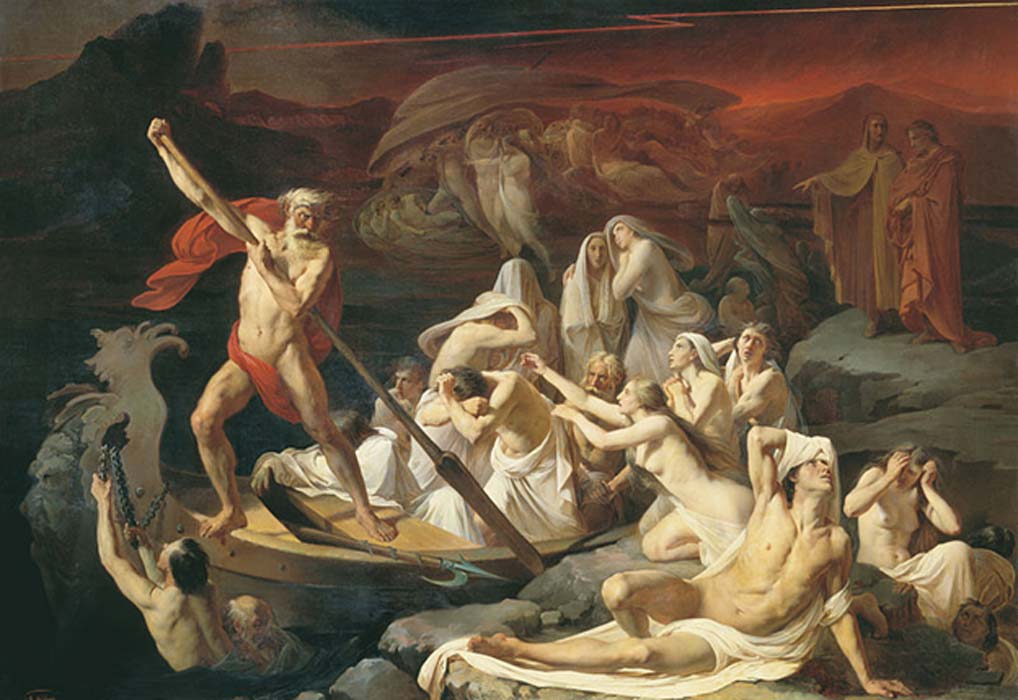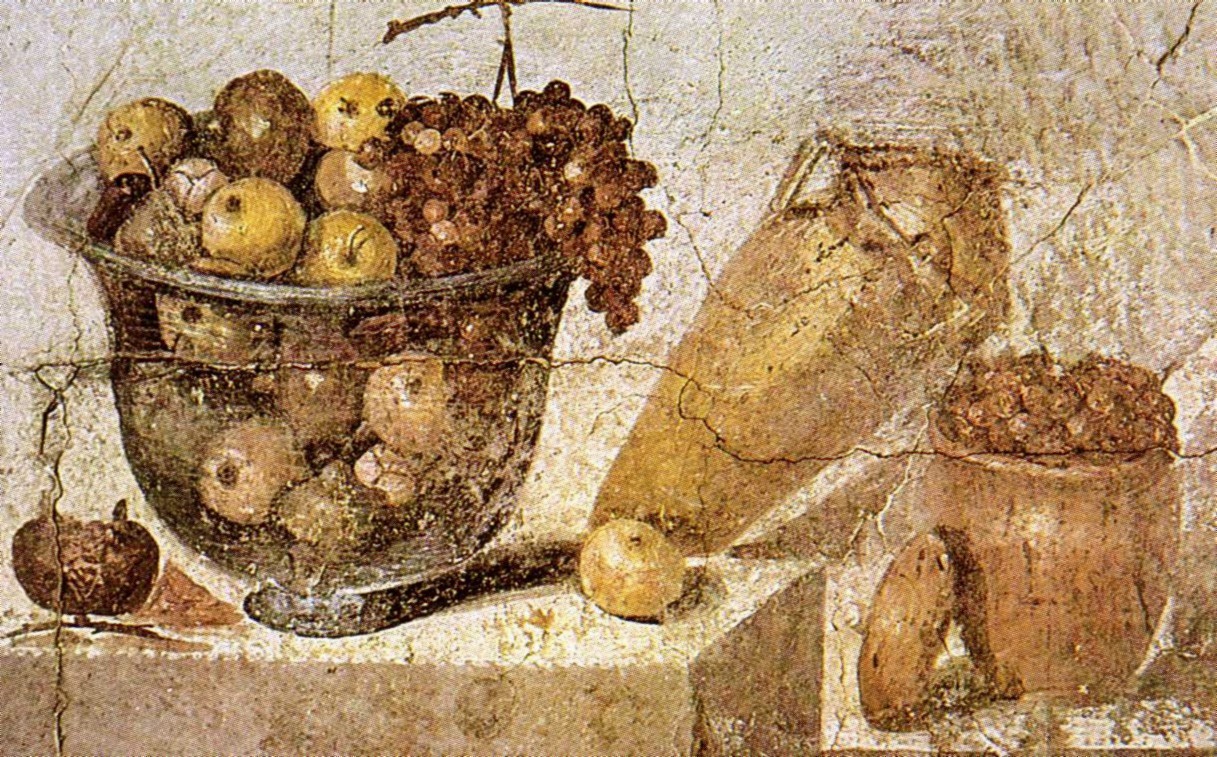CLAS 357
Lucretius (freedom/slavery in On the Nature of Things)
April 10, 2024

Roman goddess Flora (Pompeii, 1st century CE)
Creative Project #2: due Monday, April 29
Titus Lucretius Carus (94-55 BCE): no reliable biography (claim that Lucretius driven to madness by love-potent is Christian polemic)

Roman copy of bust of Epicurus
- On The Nature of Things: epic (didactic) poem on teachings of “god-like” philosophical & cosmic hero Epicurus (341-270 BCE, e.g. ". . . the vital force of his mind was victorious, / and he traveled far beyond the flaming walls of the world / and trekked throughout the measureless universe in mind and spirit. / As victor he brings back from there the knowledge . . . Religion lies crushed / beneath our feet, and his victory raises us to the sky", 1.72ff.); Epicurus' Garden, Athens (inclusiveness of sects?)
US Representative Marjorie Taylor Greene on recent solar eclipse and
earthquake
- Epicurean Nature (Greek physis): guiding principle of creation; knowledge of nature gained through senses aided by reason (empirical science)

- Epicurean materialism (after Democritus, 5th century BCE): matter < indivisible & indestructible particles (Greek atomoi, “un-cutables”; "the seeds of things", etc., in Lucretius); universe & contents the result of combinations of (infinite & everlasting) atoms

Still life peaches (Herculaneum, 1st century CE)
- Epicurean ethics: painless "pure" pleasure (Greek ataraxia, “calm”); life free from insatiable desire; friendship, simple life & therapeutic self-care (= detachment from society, living in accordance with Nature) > study of nature & universe
On the Nature of Things 2.1-33 (suave est: finding freedom off the grid?)
Sweet it is, when the wind whips the water on the great sea,
to gaze from the land upon the great struggles of another,
not because it is a delightful pleasure for anyone to be distressed,
but because it is sweet to observe those evils which you lack yourself.
Sweet, too, to gaze upon the great contests of war
staged on the plains, when you are free from all danger.
But nothing is more delightful than to possess sanctuaries
which are lofty, peaceful, and well fortified by the teachings of the wise.
From there you can look down upon others and see them lose
their way here and there and wander, seeking a road through life,
struggling with their wits, striving with their high birth,
exerting themselves night and day with outstanding effort
to rise to the level of the greatest wealth and to have mastery over things.
O wretched minds of men, o blind hearts!
In what darkness of life and in what great dangers
this little span of life is spent! Don’t you see
that nature cries out for nothing except that somehow
pain be separated and absent from the body, and that she enjoy in the mind
pleasant feelings, and be far from care and fear?
Therefore we see that there is need for very little
for our bodily nature, just enough to take away pain
and also to spread out many delights before us.
Nor does nature itself ever ask for anything more pleasing,
if there are no golden statues of youths in the halls,
holding fire-bearing torches in their right hands,
so illumination can be supplied for banquets at nighttime,
if the house does not gleam with silver and shine with gold,
and if the gilded and paneled roof timbers do not resound with the lyre,
when nevertheless people lie in groups on the soft grass
beside a stream of water beneath the branches of a tall tree
and at little expense delightfully tend to their bodies,
especially when the weather smiles and the seasons of the year
sprinkle the green-growing grass with flowers.
{cf. conclusion, "for just like children who tremble and fear everything . . .", 2.55ff., quoted at Seneca, Letter 110.6]
- On the Nature of Things 3: fear of death as quasi-enslavement; liberating onself from fear of mortality – physics of death? defiance of death > ataraxia

Litovchenko, Charon Carrying Souls across the River Styx (1861)
- mythico-poetic underworld & its tortured inhabitants (3.980ff.): rationalized/psychologized as human projections? Tantalus ("fears the boulder hanging in the air", 3.981)? Sisyphus ("[he] is here in life before our eyes", 3.995)? Tityos ("Tityos is here among us, and winged creatures / tear at him . . .", 3.992ff.)?
On the Nature of Things 3.1060-70 (the psychological effects of fearing death – anxiety, etc.)
The man who is sick and tired of his home
often leaves his mansion, and then suddenly returns,
since he feels things are not at all better outdoors.
Driving his imported ponies he races to his country villa
at top speed, as if rushing to bring help to a house on fire.
He immediately starts yawning when he touches the threshold of his villa,
or goes off into a heavy sleep and just tries to forget,
or dashing off again he seeks to return to the city.
Thus each person flees himself, but he cannot, of course,
escape the one he flees, but clings to him unwillingly and hates him
because he is sick and does not understand the cause of his disease.
- consolatio (self-exhortation): death an equal opportunity (e.g. "The descendant of the Scipios . . . gave his bones to the earth just as if he had been born an ordinary household / slave", 3.1034ff.)

Venus, Mars, Cupid (Pompeii)
- On the Nature of Things 4: physics of love, love as enslavement ("[a lover's] life is led at the beck and call of another", 4.1122); simulacra ("images") are material; dangers of love/desire as disease, impossibility of satiety & pure pleasure; deluded lover > love as foolish pursuit of insubstantial images (self-enslavement); spins off into heredity, female sexuality, (in)fertility

On the Nature of Things 4.1052-1072 (the male solution)
So therefore he who receives wounds from the weapons of Venus,
whether a boy with womanly limbs strikes him
or a woman radiating love with her whole body,
from where he is struck, there he tends and longs to have intercourse
and to send fluid drawn from his body into the other body.
For silent desire gives forewarning of future pleasure.
This is our Venus. From this too is the name of love,
From this that drop of sweet Venus first trickled
into our hearts and frigid care came after.
For if what you love is absent, still there are images available
of it, and its sweet name makes its way to your ears.
But it is fitting to flee the images and to drive off from yourself
what nourishes love and to turn your mind elsewhere
and to send your fluid, gathered together, into whatever body,
and not to retain it, once troubled by the love of one,
nor to cause care and certain pain to continue for yourself.
For the sore is kept alive and grows older by feeding
and daily the madness swells and the affliction grows worse,
unless you overwhelm the first wounds with fresh blows
and, wandering to a widely-wandering Venus, cure them while fresh
or are able to direct the motions of your mind in a different direction.
- passionless Lucretian love – liberating?

Vermillion Cliffs National Monument (Arizona)
On the Nature of Things 4.1278-87 (love & erosion)
Sometimes neither by divine agency nor by the shafts of Venus
it happens that a woman of lesser worth and beauty is loved.
For sometimes a woman herself by her very own actions
and compliant ways and neatly groomed body makes it
so that she easily accustoms you to spend your life with her.
What is more, close familiarity brings love into existence.
For however lightly anything is struck by frequent blows,
it is yet overcome in a long period of time and yields.
Don’t you also see that drops of liquid falling
on rocks bore through the rocks in a long period of time?

Still life (House of Julia Felix, Pompeii)
- psychological liberation through Epicurean science & reason?









